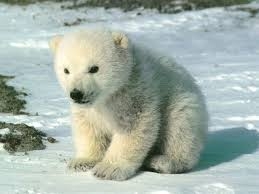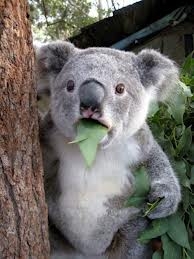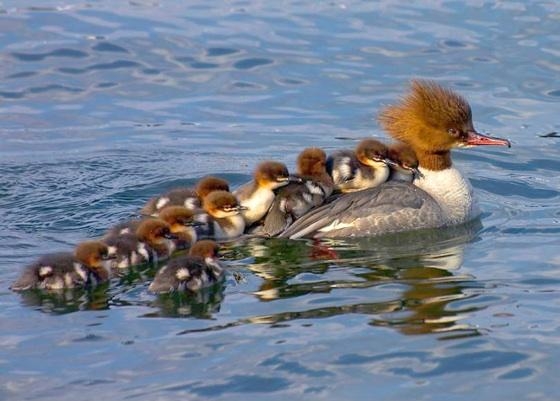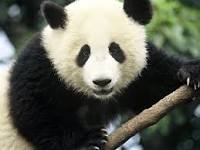Losing our ducks
- 11 May 2013 20:16228984even philip will agree that we need more wind turbines to avert a catastrophe.
http://www.independent.co.uk/environment/nature/britains-migratory-birds-stay-away-as-climate-change-moves-their-wintering-areas-further-north-8612051.html - 11 May 2013 20:33228988I've never liked ducks except the ones on my dinner plate. They've always seemed superfluous as a species in the grand scheme of things. All they do is fly very badly and make inane quacking noises. Add that to the millions of tons of good bread wasted on these creatures and their demise is a positive bonus. Add to that koalas, polar bears, pandas and other animals who spend their time merely lazing around waiting for the next environmental tourist to take a snapshot before they exist no more.
Put that article in the You couldn't make it up column to add to the plethora of other drivel written by what passes for journalism nowadays.
Funny that - Channel 4 news devoted most of it's hour last week to climate change and a report by some odd group of enviros with in need of more grant money from taxpayers that it's probably too late, enjoy it while you can.
Up popped noted climate scientist and part time commedian Bill Bailey sporting binoculars telling John Snow that he'd noticed a decline in bird species of all types because of, er you know, global warming.
No mention of the past five winters worth of global warming cold and snow we've all been suffering and other reasons but such is the power of the climate cult that even supposedly intelligent people are willing to put their face up in front of a camera and spout this nonsense. That takes guts I guess or perhaps it's down to an inherent need to perform and be the centre of attention no matter how bad the material.
Don't worry about the ducks they'll be back with a vengence.
Don't worry about the bees too as long as farmers decide to put back the hedgerows and bee keepers take care of their stock a little more carefully.
Everything's fine. Sit back, have a beer and enjoy what little warmth we get this summer which will probably won't be that much due to, erm, global warming. - 11 May 2013 21:18228992Howard I saw that on the news.
Ducks are brilliant if allowed free range of the garden, they get rid of slugs, snails etc without the damage that chickens can do with the benefit of plentiful eggs if you get the correct breed.-----------------------------------------------------------------------
I try to be neutral and polite but it is hard and getting even more difficult at times.
------------------------------------------------------------------- - 12 May 2013 07:08228997I suppose this means that the price of petrol will have to go up again?
- 12 May 2013 07:22228999andy,if every body stopped using there cars,vans etc for one [1] week,petrol supplyers would lose millions and would have to consider a price drop to start making money again.
- 12 May 2013 07:41229000Taking Philips view wouldnt have m uch wildlife left for the futureALL POSTS ARE MY OWN PERSONAL VIEWS
- 12 May 2013 09:02229009
- 12 May 2013 10:38229014First...lets get our Ducks lined-up...
"... In The Descent of Man he [Charles Darwin] gave some powerful pages to illustrate its [i.e. The conception of struggle for existence as a factor of evolution] proper, wide sense. He pointed out how, in numberless animal societies, the struggle between separate individuals for the means of existence disappears, how struggle is replaced by co-operation, and how that substitution results in the development of intellectual and moral faculties which secure to the species the best conditions for survival. He intimated that in such cases the fittest are not the physically strongest, nor the cunningest, but those who learn to combine so as mutually to support each other, strong and weak alike, for the welfare of the community. "Those communities," he wrote, "which included the greatest number of the most sympathetic members would flourish best, and rear the greatest number of offspring"...
... Darwin's remarks as to the alleged inconveniences of maintaining the "weak in mind and body" in our civilized societies (ch. v). As if thousands of weak-bodied and infirm poets, scientists, inventors, and reformers, together with other thousands of so-called "fools" and "weak-minded enthusiasts," were not the most precious weapons used by humanity in its struggle for existence by intellectual and moral arms, which Darwin himself emphasized in those same chapters of Descent of Man....
...As soon as we study animals--not in laboratories and museums only, but in the forest and the prairie, in the steppe and the mountains--we at once perceive that though there is an immense amount of warfare and extermination going on amidst various species, and especially amidst various classes of animals, there is, at the same time, as much, or perhaps even more, of mutual support, mutual aid, and mutual defence amidst animals belonging to the same species or, at least, to the same society. Sociability is as much a law of nature as mutual struggle. Of course it would be extremely difficult to estimate, however roughly, the relative numerical importance of both these series of facts. But if we resort to an indirect test, and ask Nature: "Who are the fittest: those who are continually at war with each other, or those who support one another?" we at once see that those animals which acquire habits of mutual aid are undoubtedly the fittest. They have more chances to survive, and they attain, in their respective classes, the highest development of intelligence and bodily organization. If the numberless facts which can be brought forward to support this view are taken into account, we may safely say that mutual aid is as much a law of animal life as mutual struggle, but that, as a factor of evolution, it most probably has a far greater importance, inasmuch as it favours the development of such habits and characters as insure the maintenance and further development of the species, together with the greatest amount of welfare and enjoyment of life for the individual, with the least waste of energy...."
http://en.wikisource.org/wiki/Mutual_Aid_a_Factor_of_Evolution/Chapter_IIgnorance is bliss, bliss is happiness, I am happy...to draw your attention to the possible connectivity in the foregoing. - 12 May 2013 11:12229015...who needs animals, who needs ducks...
Would we really have such things as sky-scrapers if we did not have the knowledge we gained from mountaineering, could we continue to boast of 'our' ability to go everywhere, and exist anywhere on our planet, be it at high-altitude or the upper and lower limits of latitude, without the Eider?
Would heavier-than-air machines have achieved flight if Leonardo had not so long studied birds in flight?
Some time ago I heard on the radio the opinion that the British Empire would have failed to materialise were it not for the numberless flights of the Jay, with its habit of 'dropping' undigested acorns in flight and so spreading the growth of our historic forests of Oaks.Ignorance is bliss, bliss is happiness, I am happy...to draw your attention to the possible connectivity in the foregoing. - 12 May 2013 13:41229023Hopefully people could see the irony in my earlier posting.
I'm an average animal lover. By that I mean that, like most people, I enjoy seeing birds fly (except gulls of course) squirrels bounder about (except grey of course) and insects crawl and buzz about flowers in the sunshine of a hot summers day ( except wasps, flees, ticks and woodworm of course).
I don't obsess about them but accept them as part of the landscape and for the important job they do making up part of the ecosystem.
What has happened is that sef interested groups have, once again, bandied together to spread fear and panic in order to push forward their agenda which inevitably preaches the mantra of climate change.
Read the report that the worried concerned have issued recently and there really is no evidence of a grand loss in the number of cherry picked species they care to warn us about and their imminent demise is caused by the climate.
Funny that they blame global warming when there has been no warming for the past sixteen or so years. Certainly in the UK the average winter temperatures have been going down over the past five or so years. So obviously there is another explanation as to why the numbers have changed.
But to blame climate change is just dishonest and gives sceptics like me more ammunition to show that all this panic about the climate is not only stupid but highly damaging both economically and in other ways.
But people love a good scare story which is why reports like this sell so well. It's one long drama playing out like the Archers with an endless story line.
To these people it makes the World slightly unworldly as if all these environmental stories were happening on a different planet much like Ambridge is to avid fans of radios longest soap.
This week it was ducks - tune in next week to see what other impending doomsday story will carry us all through the next installment. - 12 May 2013 14:44229026
- 12 May 2013 22:00229075funny with philip
an avarage animal lover
dont think soALL POSTS ARE MY OWN PERSONAL VIEWS - 13 May 2013 00:39229088Odd thing to say that Keith when I made my opinion quite clear. I have no more or less interest in animals than the next man and merely point out that the creatures that environmentalists reckon are endangered are nothing of the sort.
Anyhow that channel 4 news piece which told of impending doom has been rightly debunked by this chap. Well worth a read and once again exposes the myth that our planet is facing dire peril:
http://notalotofpeopleknowthat.wordpress.com/2013/05/11/climate-change-causing-wildlife-crisischannel-4-news/#more-3226
helpfully, reading the comments section, someone's quoted a piece from none other than Charlie Darwin which Tom might find interesting. - 13 May 2013 12:00229145Yes, thank you Philip.
What piqued my interest, and led to my pasting the Wiki pieces above, was the re-emphasis of co-operation over the much touted notion of "survival of the fittest".
As far as politics and the media are concerned in all things 'nature', it is that 'nature abhors a vacuum', and with little else to talk about, babbling on about beavers and hedgehogs is what takes up the space.Ignorance is bliss, bliss is happiness, I am happy...to draw your attention to the possible connectivity in the foregoing. - 13 May 2013 12:33229151Zzzzzzzzzz more of the same hysteria below:
http://www.guardian.co.uk/environment/2013/may/12/climate-change-expert-stern-displacement?CMP=twt_fd
Someone needs to show them a chart of el nino events over the past few hundred years and the subsequent droughts.
Funny that they describe Lord Stern as a "climate expert" having qualifications in maths and economics which is heartening really meaning that my city and guilds certificate qualifies me to give an expert opinion on rocket surgery.
I worked for a few years with someone who studied arts history and lectured on the subject for some time. She too is considered to be a climate expert by the Guardian and spent much of her time jetting all over the world in order to save the planet and laughably bring down carbon emissions.
I see the gull population has been flourishing over the past few years - proof positive, no doubt, of an alarming rise in carbon dioxide and temperature levels.



